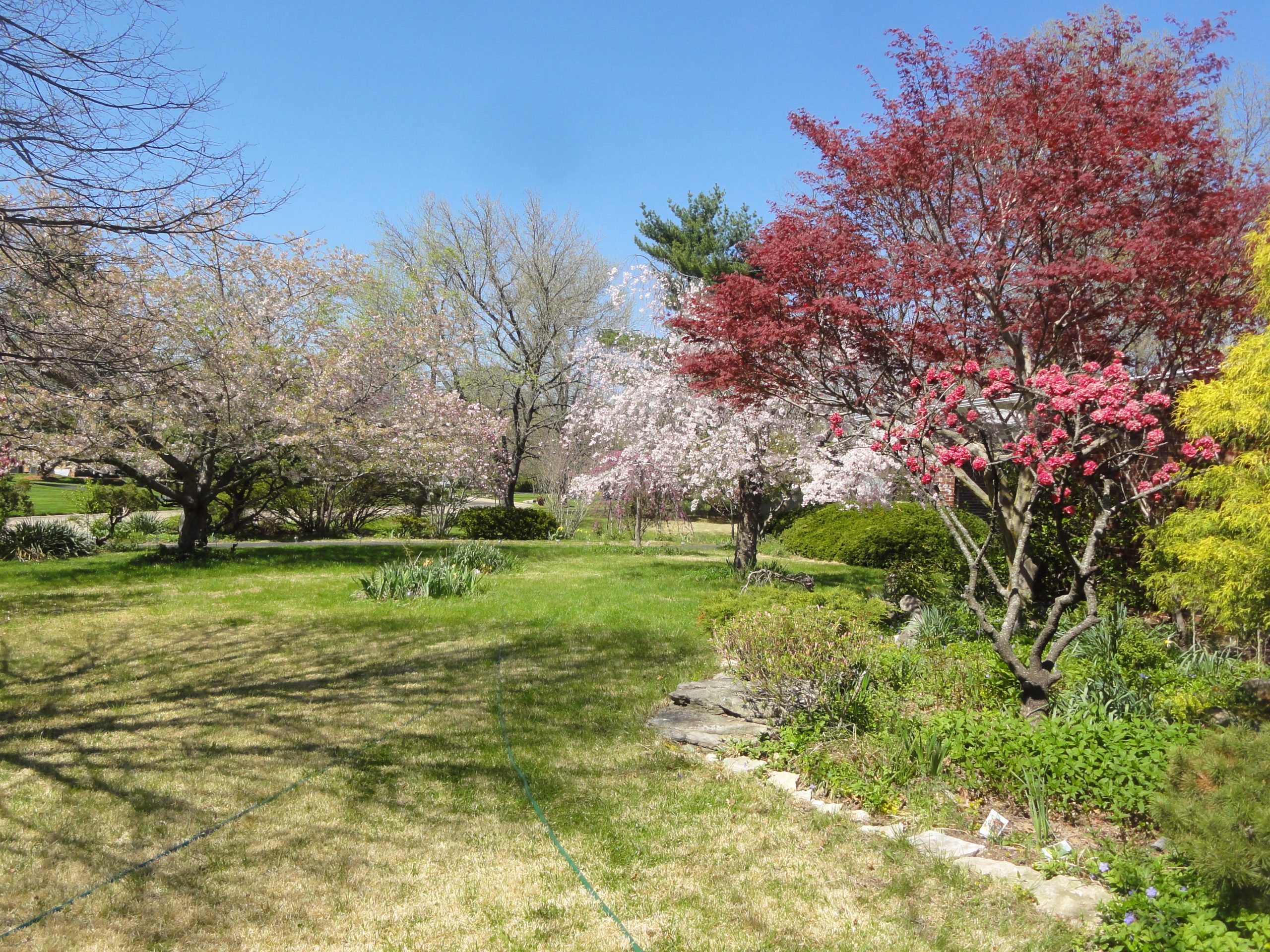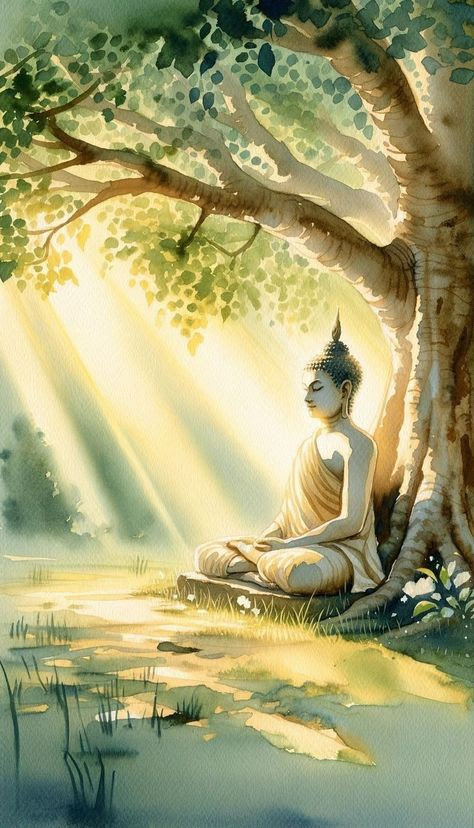Equinox Is Equanimity, Nirvana
Equinox (equal in day and night, chill and heat) is celebrated as equanimity, nirvana, called higan, yonder shore, in Japan, with offerings of rice cakes to deceased ancestors, and with practice of the Six Paramitas, Perfections, of donation, morality, patience, striving, concentration, and prognosis over six days, three days before and after it.
Nirvana is no wind of karma (cf. stock phrase of nivāte padīpa, lamp-light in no wind, illuminating the world in a calm and clear state), renouncing the karma that tosses us up and down, merging into the Dharma world, witnessing the Dharma (Norm) of all dharmas (forms) in a calm, clear, controlled, careful state.
It is the Four Limitlessnesses, or Brahma (Supreme/Pure)-abodes, of friendship, compassion, joy, and equanimity, i.e., limitless love, light, liberation, and life and holy (wholly wholesome) harmony, health, happiness, and home. Equanimity in the original is upekhā, renunciation or throwing away of all.
Nirvana is described in many ways: the falling away of body and mind, the pail bottom broken away, shedding (snake) skin, the genuine human body, a clear crystal ball, the entire world in ten directions as a clear crystal ball, the Pure-land, the Dharma body, amata/amṛta (ambrosia, lit. immortality), the eight Nos, a hundred negations, etc.
March 21, 2024 C.E.
Notes:
- Dharma means 1. form (from d-harm: phenomenon), 2. norm (from d-h-arm: norm: law operating through phenomena: ethic), and 3. the teaching of the law of all phenomena, that is, Dependent Co-origination (originally awakened on the origination of perception/consciousness depending on the sense organs and their objects, but later applied to all phenomena, cf. note 5). This law is similar to the law of causality, now used by sciences, but deeper and wider, applied beyond objects – more on subjects and symbols – ideas, etc.).
- “The Dharma (Norm/Law/Truth/Ethic) of all dharmas (forms/phenomena/ truths/ethics)” is Dependent Co-origination, i.e., all phenomena are interdependently co-originated on limitless causes and conditions (similar to the Law of Causality, but deeper and wider – beyond conventions, conceptions, objects, etc.). This means that we are interrelated with other beings (other species, elements, stars, etc.), and relatives to each other, and that we must therefore live together harmoniously and strive to make a wholly wholesome world become harmonious, healthy, and happy.
- Samādhi is essential to go beyond karma (especially its Triple Poisons of desire, divisiveness, and delusion) and settle in nirvana (by sitting still, stilling karma, settling in nirvana, seeing the Dharma/dharmas/Dharma world, and serving and saving all), in which true meditation and its prognosis (paññā/prajñā) can function.
- Karma is instilled with the triple poisons of desire, divisiveness, and delusion (of ego/mei: I/my). The Buddha said that all living beings are karma-birthed, -heirs, -owners, -machines, and -refuged. He clarified that there is no self-substance with self-sameness (permanent) and self-sovereignty (wishful) entities due to the Dharma (Truth/Law) of all dharmas (phenomena), Dependent Co-origination. We as karma-machines must change to the Dharma-refuged in order to change the world in suffering to one in holiness (wholly wholesome: harmonious, healthy, and happy).
- Nescience (avijjā/avidyā) means no witness of nirvana (no wind, of karma) and the world in it (cf. Latin video) due to our being karma-machines, like a mouse continuously running on a treadwheel, not stopping to sit still, settle in nirvana, and see the Dharma, serving and saving all.
- Nirvana means no wind (of karma imbued with the triple poisons of desire, divisiveness, and delusion), where one can for the first time witness the Dharma world and become awakened from the long night of nescience to the Dharma of all dharmas in calm, clear, controlled, and careful conditions, then prognosticate problems and sufferings in the Four Holy Truths and the Eight Holy Ways.
彼岸は平静、涅槃
彼岸(昼夜、寒暖の均等)は日本では彼岸と呼ばれて平静、涅槃として祝われ亡くなった先祖へ牡丹餅・お萩をそなえ、その前後六日間は布施、戒律、忍辱、精進、禅定、般若(知恵:処方)の六波羅蜜を実践します。
涅槃(nir-vāṇa)は業の無風(ni=vāte padīpa:無風の灯火が平穏で明澄な状態で世界を照らすという常套句を参照)で、私達を上下に動揺させる業を放棄し、平穏、明澄、統御、注意の状態で法界に円融し、諸法の法を直証します。
それは慈・悲・喜・捨(放棄)の四無量あるいは四梵(至高・清浄)住、即ち無量愛、無量光、無量自由、無量寿であり、聖(全体健全)な調和、健康、幸福、家庭です。平静の原語はupekhāで一切を放棄・捨離することです。
涅槃は多くの方法で表現されています:心身脱落、打破漆桶底、脱(蛇)皮(蝉脱)、真実人体、一顆明珠、尽十方界一顆明珠、浄土、法身、甘露(amata/amṛta:ambrosia神饌、字義は不死)、八不、百非など。
2024共通年3月21日
註:
1.法(dharma)は 形態(form: d-harmより: 現象:真理)、2.規則(norm: d-h-armより:現象中の規則:倫理)、3.諸法の法、縁起(元来は感覚器官と感覚対象に依る知覚・意識の発生に覚醒したが後に一切現象に適用されたもの。註5参照)。この法則は、現今諸科学に用いられる、因果律と同様であるが、もっと深く広い-客体を越えて主体と観念などの象徴に適用される。
2.諸法(形態・現象)の法(規則・法則・真理・倫理)は縁起(因縁生起)、即ち、一切現象は無量の直接原因と間接条件により相依生起するということである(因果則に似ているがさらに深く広い-世俗、観念、対象などを超える)。これは私達が他者(多種、要素、星宿など)と相依関係にあることを意味し、相互に相対的であり、私達が調和、健康、幸福になる為には共に調和して生き、全体健全な世界を作る努力をしなければならないことを意味する。
3.業は貪瞋(エゴ/メイ:我/我所の)痴の三毒が植え込まれている。ブッダ(覚者)は一切衆生は業—誕生者、—相続者、—所有者、—機械、—依拠者であると言った。彼は、諸法(現象)の法(真理/倫理)である縁起の故に自己同一(永住)と自己主宰(意欲通り)の実態をもった自己物質は存在しないことを明らかにした。業—機械である私達は、苦しむ世界を聖(全体健全:調和、健康、幸福)なる世界に変える為には、法₋依拠者にならなければならない。
4.定(Samādhi)は業(特にその貪瞋痴の三毒)を超え、(静坐、止業、住涅槃、観法/諸法/法界、一切奉仕・救済し)涅槃に安住するのに必須であり、この中で本当の瞑想とその般若の智慧(paññā/prajñā)が働くことが出来る。
5.無明(無確証: avijjā/avidyā))は、私達が、鼠が踏み車を踏み続けるように、業機械として止まらず、静坐せず、涅槃に安住せず、法を見ず、一切に奉仕、救済しない為に涅槃(無風、業の)とその中に在る世界を直証(参照:ラテン語video)しないということである。
6.涅槃は(貪瞋痴で染汚した業の)無風を意味するが、そこで人は静謐・明澄・統制・注意状態で法界を直証し諸法の法に初めて無明長夜から目覚めて、問題と苦に対する四聖諦、八聖道で般若(の知恵:処方)を得る。
.
.
.
.
.
.
.
.
.
.
.
.
.


